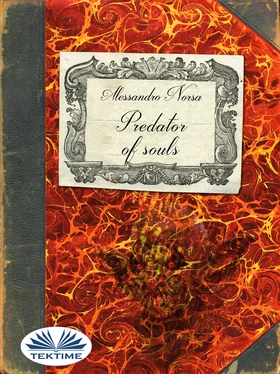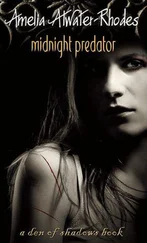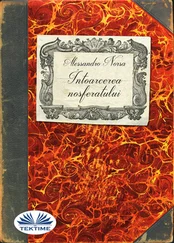Alessandro Norsa - Predator Of Souls
Здесь есть возможность читать онлайн «Alessandro Norsa - Predator Of Souls» — ознакомительный отрывок электронной книги совершенно бесплатно, а после прочтения отрывка купить полную версию. В некоторых случаях можно слушать аудио, скачать через торрент в формате fb2 и присутствует краткое содержание. ISBN: , Жанр: foreign_religion, на английском языке. Описание произведения, (предисловие) а так же отзывы посетителей доступны на портале библиотеки ЛибКат.
- Название:Predator Of Souls
- Автор:
- Жанр:
- Год:неизвестен
- ISBN:978-8-87-304051-4
- Рейтинг книги:4 / 5. Голосов: 1
-
Избранное:Добавить в избранное
- Отзывы:
-
Ваша оценка:
- 80
- 1
- 2
- 3
- 4
- 5
Predator Of Souls: краткое содержание, описание и аннотация
Предлагаем к чтению аннотацию, описание, краткое содержание или предисловие (зависит от того, что написал сам автор книги «Predator Of Souls»). Если вы не нашли необходимую информацию о книге — напишите в комментариях, мы постараемся отыскать её.
Predator Of Souls — читать онлайн ознакомительный отрывок
Ниже представлен текст книги, разбитый по страницам. Система сохранения места последней прочитанной страницы, позволяет с удобством читать онлайн бесплатно книгу «Predator Of Souls», без необходимости каждый раз заново искать на чём Вы остановились. Поставьте закладку, и сможете в любой момент перейти на страницу, на которой закончили чтение.
Интервал:
Закладка:
Alessandro Norsa
PREDATOR OF SOULS
Journey in the land of the vampires
Compiled by signor Alessandro Norsa and accompagned on location by most highly praised advisors
Original title: Il ritorno del non morto. Viaggio nel regno dei vampiri
Translation: Peter Fogg
TEKTIME 2017
Thanks for the kind cooperation from:
Prof. Rudolf M. Dinu, Direttore Istituto Romeno di Cultura e Ricerca Umanistica â Venezia [Director of the Romanian Institute of Culture and Humanities Research â Venice]
Dr Mihai Stan, Istituto Romeno di Cultura e Ricerca Umanistica â Venezia [Romanian Institute of Culture and Humanities Research â Venice]
Prof. Tudor SÄlÄgean, Direttore Muzeul Etnografic al Transilvanei â Cluj-Napoca (Romania) [Director of the Ethnographic Museum at Cluj-Napoca (Romania)]
Prof. Ion ToÅa, Historian at the Muzeul Etnografic Transilvanei â Cluj-Napoca (Romania) [Transylvanian Ethnographic Museum at Cluj-Napoca (Romania)]
Prof. Alberto Borghini, Direttore Centro di Documentazione della Tradizione Orale [Director of the Oral Tradition Documentation Centre] Piazza al Serchio (CTDO) engaged in the construction of a national folklore archive and Professor of Cultural Anthropology, Polytechnic University â Turin
The Romanian advisers: Mocan Lena Zamfira (Zalau â Salaj), Florea Cosmi (Runcu Salvei) and Pivasu Lucia (BraÅov).
Particular thanks go to my friends Aldo Ridolfi, who, with the greatest patience and painstaking thoroughness helped to edit the text, Gigi Speri, who with shrewd graphics expertise gave form to the book and Simona Strugar, valuable contributor, to whom goes all my gratitude for the translation of the Romanian texts and for having given me the possibility to get to know and appreciate the culture of her country, as well as providing me with valuable suggestions on reading about the myths of Transylvania.
Original title: Alessandro Norsa: Il ritorno del non morto.
Viaggio nel Regno dei Vampiri . Liberamente: March 2016 ©. English version: The predator of souls. Journey in the land of the vampires, March 2017 ©.
https://www.facebook.com/Il-ritorno-del-non-morto-218253505241025/
e-mail: norsaalessandro@yahoo.it Publisher: Tektime â www.traduzionelibri.it Translation: Peter Fogg All rights reserved. No part of this publication may be reproduced in any form, including by any mechanical or electronic system, without the written permission of the editor, except for brief passages taken for the purposes of review.
Edizioni LiberAmente [Editions]
Psychology and Anthropology Series
- Alessandro Norsa. Nellâantro della strega [In the witchesâ cave]. La magia in Italia tra racconti popolari e ricerca etnografica [Magic in Italy from popular stories to ethnographic research]. 2015
- Alessandro Norsa. Nel sabba delle streghe sotto il Noce di Benevento [In the witchesâ Sabbath under the walnut tree of Benevento]. 2016
- Alessandro Norsa. Il predatore di anime [The predator of souls]. Viaggio nella terra dei vampiri [Journey in the land of the vampires]. 2016
Fiction and Poetry Series
- Aldo Ridolfi. Novelle e racconti [Short stories and tales]. 2015
- Simona Strugar. Solstizio [24th June]. 2016
PREFACE
This brief but rich - and interesting - work by Alessandro Norsa, which is about vampirism and what we can call its âsurroundingsâ, also makes use of some interviews made by the Author himself in Romania.
For our part, we limit ourselves to emphasise certain points. The first, among those we wish to recall, regards the practice of covering up mirrors on the occasion of a death:
On the death of a family member the mirrors in the house are covered because otherwise the soul, being reflected, remains imprisoned between the walls of the house,
The old lady Florea tells us. Thus, in turn, the youngest Lena says:
(...) the mirrors and any other reflective surface are covered to avoid the spirit (i.e. of the dead person) remaining a prisoner in the house.
Beyond the euphemistic âexplanationâ (the soul of the dead would remain âimprisonedâ inside the house), we are confronted - it seems to me fair to support) - by one of the practices of âexpellingâ the deceased from the domestic space.
And, naturally, we are confronted by the basic themes of the reflected image.
It is relevant, along an âanalogousâ line, what Lucia (about 50 years old), from the area of BraÅov, refers to when she tells us inter alia:
At midnight... I donât know at what time of the year... Perhaps when a person has died...â I switched off the lights, looked in the mirror and saw the vampire in the mirror... Meaning that the dead person had not been happy in their life...
Therefore, cover the mirror when someone dies so that the dead person is not reflected... if they are reflected it would be a vampire...
And she added:
(...) The vampire would be the spirit of the dead person when he or she was not happy in their life... when a dead person is not happy it is very bad...
Previously she had said:
When someone dies, a husband, brother, sister, someone in the family... a baby... it is customary to cover the mirrors with a dark cloth and to light the candles.... you cover the mirrors because they say that it brings bad luck... if you donât cover the mirrors, the dead person is reflected in the mirror - for three days the spirit remains in the house - it goes out and remains near the house for forty days and after forty days it disappears - it goes away into its own world...
It would seem to be understood that if you do not cover the mirrors the dead person who was not happy in life, being reflected, remains in the house as a vampire - as a vampire reflection - and âthat is very badâ. The fear, essentially, is of the vampire-reflection - and that this vampire-reflection (âif it is reflected it would be the vampireâ) remains in the house; etc. Hence the ânecessityâ - it is revealed - to cover the mirrors in an event of a death so that the spirit of the dead person does not remain âa prisoner in the houseâ (a âeuphemistic imageâ). Coming back to Lena, the woman tells also of a girl who was transformed into a toad by the effect of a spell the girl requested from the witch herself. Here is what happened:
(...) my mother told me about an engagement opposed by the boyâs mother. The girl went to a witch who put a spell on her. Every night the girl changed into a toad to enter her fiancéâs house. The boyâs mother, often finding that big, croaking and squirming animal under her feet, wanted to kill it, and, one day, achieved her intention. In that moment, the boy died (...).
It is a matter here of a narrative outline - of an âeventualityâ that one encounters frequently also in Italian folklore: a witch changes herself into an animal or an object, which it then hit, and the witch ends up, therefore, maimed in a âcorrespondingâ part of her body. Just because it has to do with a transformation into a toad, I report that this attestation comes from Garfagnana (Cogna), in the province of Lucca [Central Italy]:
A young man from Villa Collemandina was returning home after having been at his fiancéeâs. It was the middle of the night, and to see he had a torch made of straw. At a certain point, he stumbled on something soft; he stopped, and in the faint light of the flame saw a large toad; annoyed, he thrust the torch towards the poor animal and gave it a good scorching. The next day he met a friend, whose face was disfigured by a horrible wound. âWhatâs happened to you?â - he asked him - âAh!, after having ruined me in this way you also ask me what happened to me?!â - âBut what are you saying?â Could it have been me that burned you?â - âYes, it was really you, last night! That toad that you met, it was really meâ.
Читать дальшеИнтервал:
Закладка:
Похожие книги на «Predator Of Souls»
Представляем Вашему вниманию похожие книги на «Predator Of Souls» списком для выбора. Мы отобрали схожую по названию и смыслу литературу в надежде предоставить читателям больше вариантов отыскать новые, интересные, ещё непрочитанные произведения.
Обсуждение, отзывы о книге «Predator Of Souls» и просто собственные мнения читателей. Оставьте ваши комментарии, напишите, что Вы думаете о произведении, его смысле или главных героях. Укажите что конкретно понравилось, а что нет, и почему Вы так считаете.












